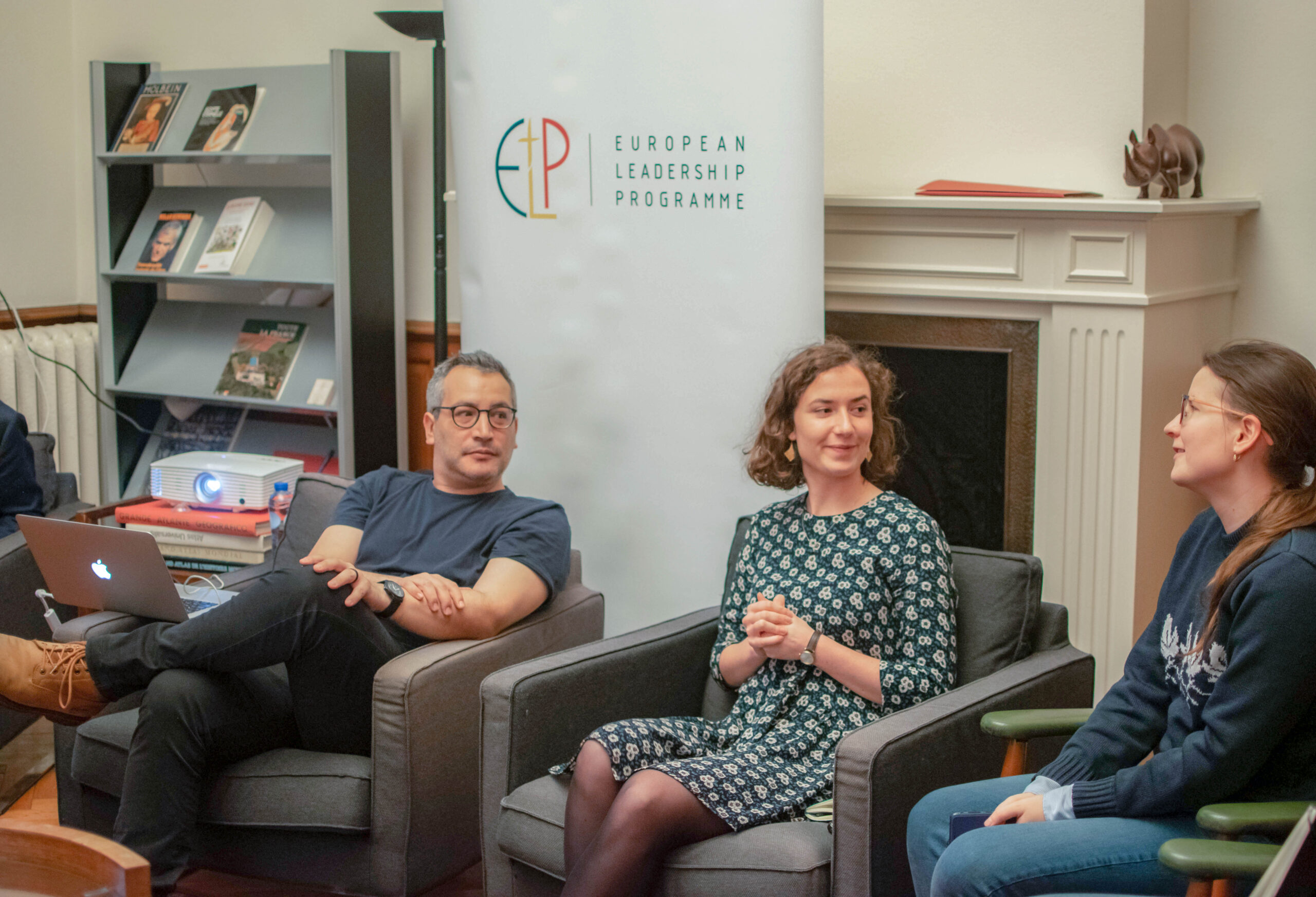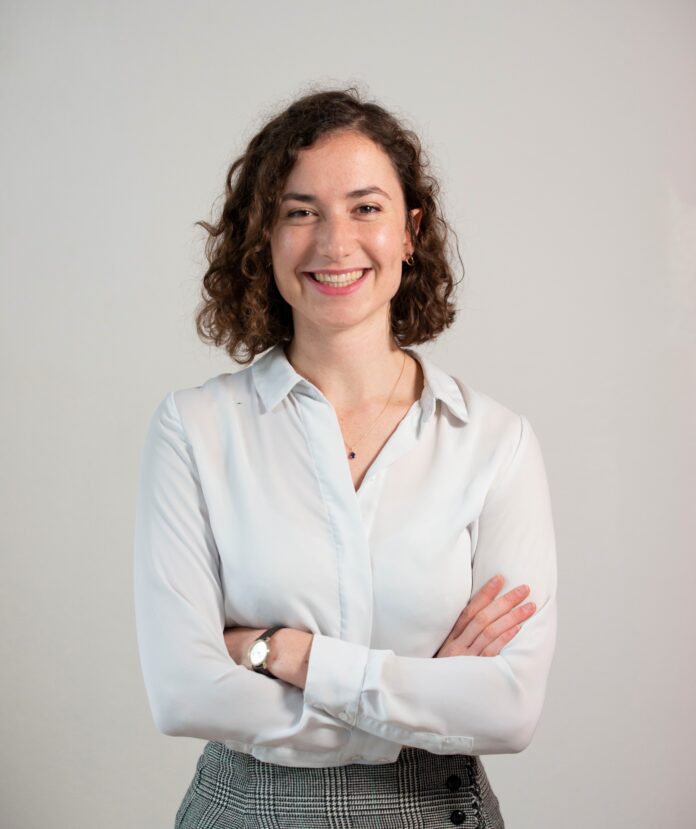The European Leadership Programme (ELP) is about personal and professional growth. ELP considers our alumnus as family. We want to stay connected to encourage them and walk side-by-side with them on their journey. We want to connect and support our network of Alumni in promoting the mission of the European Leadership Programme (ELP) of shaping the future leaders of tomorrow.
Name: Bénédicte Colin
Country: France
Traineeship placement: Federation of Catholic Family Associations in Europe
We want to get to know you better.
Tell us a bit about yourself.
I’m Bénédicte Colin, 23, from Strasbourg, France. I am very French, as all my friends will tell you. Yet, when you grow up on a border, especially the one between France and Germany, you are taught the importance of peace and cooperation rather than selfishness and nationalism. I always loved history, especially international relations, so that is what I studied, along with European studies. With my diploma fresh in hand, I arrived in Brussels for the ELP. I am still in Brussels today!
Describe yourself in three words.
Outgoing, passionate and caring.
Outgoing: I love movement, novelty, discovering new places, new persons, new stories and new perspectives. That is what keeps me moving.
Passionate: I get easily moved by topics related to social justice, be it in my researches or in debates I encounter. Sensitivity is a strength, as it shows empathy, but it is also sometimes a weakness, as it also means to be very spontaneous and outspoken and not always very wise…

Caring: Like every person, I cherish my family, my friends, and persons I meet. I might have a soul of an 80 years old Italian nonna, I am always afraid people are still hungry.
What are your interests or hobbies outside of work?
I love arts, from painting to theatre, opera and ballet. I do love museums, all of them: history, art, natural history, botanic, etc. I also love nature, especially hiking in the mountains. From all those things, you can maybe grasp an idea of me being a wanderer, in my feet and in my head.
Yet I will not pretend I do not love to dance to a good 1950s or 1980s rock song. Rock is the best dance in the world, you will not convince me otherwise.
Besides that, I would say I appreciate simple things, a beer on a quiet terrace or in a crowded bar with friends, a picnic in a park with my nieces, beautiful old buildings, and nice sunlight.
Do you have any inspirational person or quote?
I am a bit of a Catholic cliché for that, but saints are big inspirations for me, because many of them were very stubborn persons, very proud, sometimes quite irritating, but were persons who understood that something was bigger than them in their life, and was worth to give up anything, for that simplest thing and fact: love.
I have a deep affection for Saint Jean-Paul II. The way he spoke to the young about their everyday problems: social justice, sexuality, and feminism.
He is for me a strong example of how much Christianity and the Church, are not outdated but, on the contrary, are so much inserted in the present, and so radical and rebellious at the same time. Of course, I am drawn to his most well-known quote: “Do not be afraid”.
What motivates you in life/ What are you passionate about?
I am deeply passionate about social justice and women’s rights. As an example, I cannot stand the discrimination that mothers face at work and in their everyday life. It has been a fundamental issue for me for the past few years.
The question of pornography is also a recurrent theme in my personal interest and research: it is for me a key factor that explains many issues in our societies (disastrous sexual education, child pornography, rape culture, incest, violence against women, etc.).
ELP Programme
What was your motivation to apply to the ELP?
Having done European studies, Brussels was a dream for me. When I saw the possibility to work in an NGO, my second dream, in Brussels, with the exceptional opportunity to continue to expand my knowledge about Europe, and to explore new “soft” work competencies such as leadership skills, I did not need any more motivation than that!
In addition, ELP is not only a programme, it is also a network. I was curious to listen to numerous speakers, meet high-level policy-makers, researchers and key actors in civil society. Those are precious contacts for a career in the European “bubble”.
How did the ELP helped you achieve your career goals?
The ELP made me realise my worth as a worker and as contributor to the common good. I gained both confidence and a new sense of responsibility with the ELP, which is, from my perspective, a key element to improve the commitment to work and the care for results. It think it really helped me in my internship to be able to obtain a full position at my workplace. 
What advice can you give to current ELP Fellows and future applicants?
To the current ELP Fellows: appreciate this time, it is a precious one. Explore the city, this country or even others with your fellows. Share a dinner, groceries, or a chat, as it will mean the start of beautiful friendships. Listen to the lectures, get passionate about new subjects, outraged over some debates, write papers from your heart, fill your head with ideas and knowledge. But always be considerate of others opinions, beliefs and situations in life. To take a step back and reflect is something crucial I learned in the programme.
Future applicants, please apply, you do not want to miss this opportunity!
Leadership
How do you think ELP helped you on the path of becoming a leader?
The ELP helped me to understand what a leader is. I always thought that a leader had to impose himself over others at some point. But when I realised that it was rather a question of team work, of enthusiasm I might be able to give, it really was a revelation to me.
Being a leader no longer sounded like something presumptuous I do for myself, but rather as an act of humility to be at the service of your team and your community in taking charge of some responsibilities.
What leadership skills did you learn?
I learned to listen to the others, to their ideas and vision to solve a problem. I also learned to understand the dynamism of a group, and optimise everyone’s contribution to get better results, and create a working environment where everyone feels appreciated and useful with their own skills.
ELP encourages the Fellows to engage in community service through volunteering. Tell us about your experience volunteering.
I volunteered to serve breakfast for refugees. I had to wake up early to go at night in the rain and the cold to make sandwiches for people I did not know anything about, except that they had a life more difficult than mine.
It helped me to appreciate what I have in my life, but also to go outside of my comfort zone to give something for free, without expecting anything in return. And it is an absolute great feeling.
What part of the Programme most surprised you or what did you enjoy the most (meeting any speaker, a specific lecture or activity)?
The lecture by Peter Rožič really impacted me. Coaching sessions were a surprise of the programme. It was great to learn about interpersonal communication.


